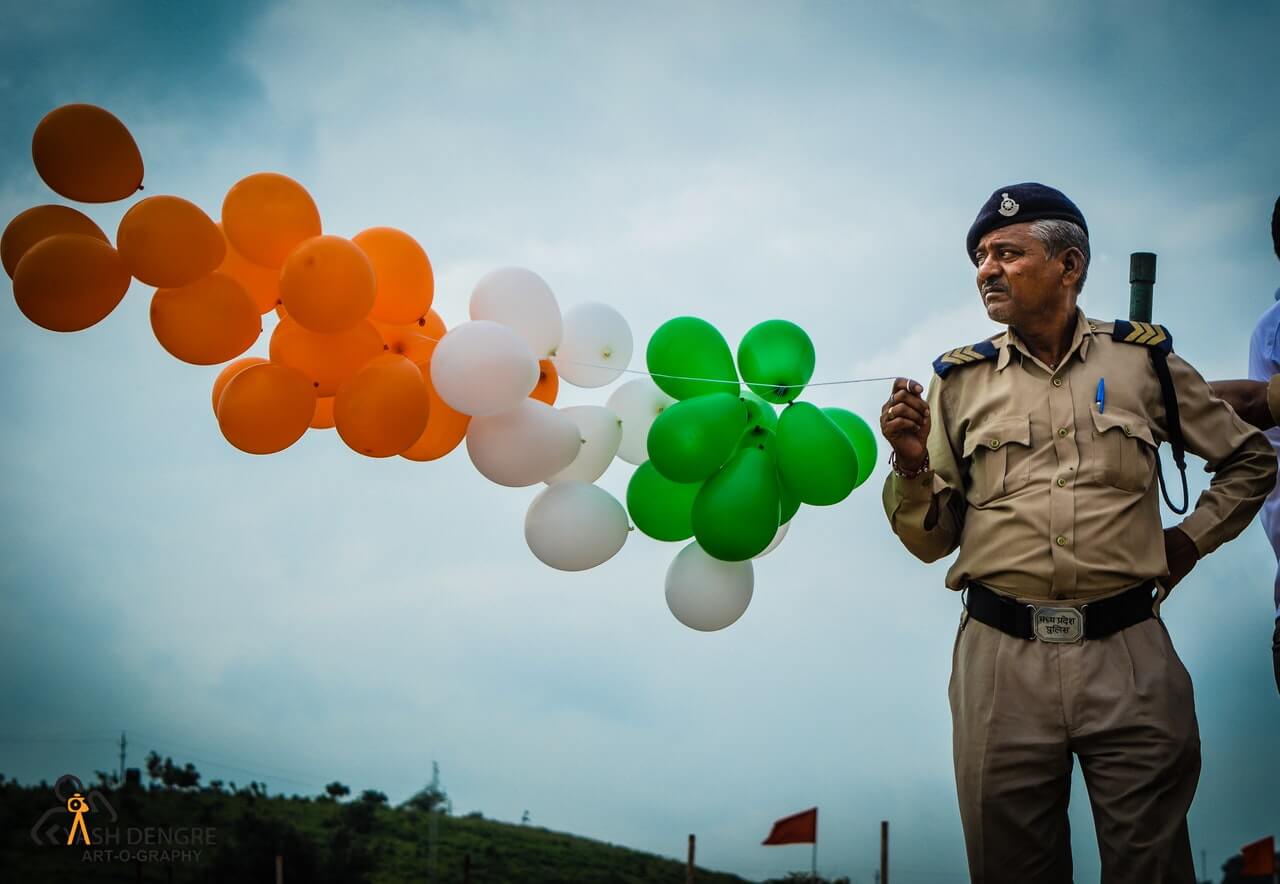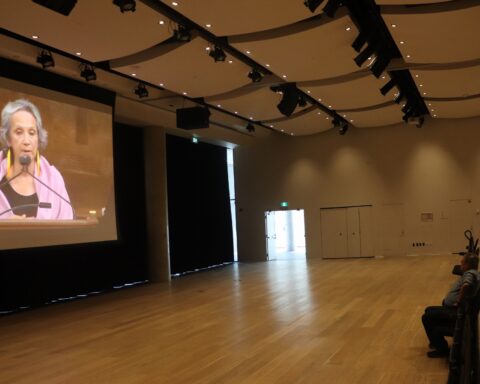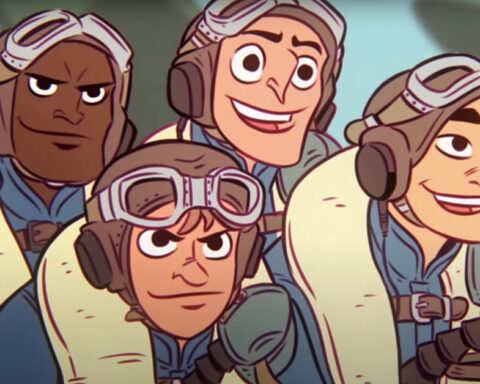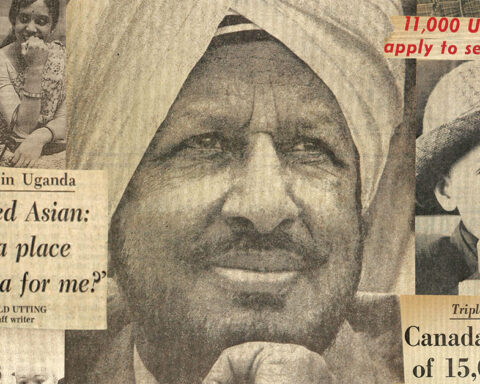History records December 31, 1600 as the day when a group of the ‘British traders’ anchored their boat on the west coast of India and approached Mughal Emperor Jahangir (1569-1627), seeking his permission to pitch a small tent for shelter and build a business to help them earn a modest living. The Emperor, unlike his guests, was much too naïve and far too generous for his own good, and granted their request right away.
The British had began settling in the Indigenous territories that made up Canada two centuries before they ventured into India. However, their approach was similar — trade, backed by rifles.
Slowly and steadily, the traders’ small tent and business in India grew into such a huge empire that the last Mughal Emperor, Bahadur Shah (1775-1862), had to vacate his most loved bedroom (Delhi) to accommodate these traders, and move to Rangoon (Burma), where he died.
Freedom is not free. Everyone knows this, and that it requires sacrifices to regain it. The kind of sacrifices Indians made to gain freedom can never be forgotten, even if we have moved thousands of kilometres from the Indian homeland.
Who can ever forget the psychotic behaviour of Brigadier-General Reginald Dyer? This was the man who ordered the massacre of whomever had gathered to celebrate the holy festival of Baisakhi on April 13, 1919 in Jallianwala Bagh in Amritsar. That day, history records 379 individuals were murdered and 1,100 men, women and children injured. This massacre is commemorated during Baisakhi festivals in Punjab, Surrey, Vancouver and Toronto, as well as many other places.
Thomas Babington Macaulay starved India culturally. He recommended the use of English as the medium of instruction in all schools, and the training of English-speaking Indians as teachers. He wrote to the British Parliament in his report on Indian Education that, “It is, I believe, no exaggeration to say that all the historical information which has been collected from all the books written in the Sanskrit language is less valuable than what may be found in the most paltry abridgement used at preparatory schools in England.”
In addition, India had lost billions of Rupees, tons of gold and silver, precious jewels, commodities such as, cotton, silk, tea, spices and rice etc., and 378 years of dignified living in the process of pulling up the stakes that the British had dug into the ground to build a small tent.
As a third grade student, the epithet sone-ki-chiriya (the bird of gold) that the British used for India, did not make much sense to me. Later, as I grew up and watched episodes of Tweety Bird and Sylvester, in which Sylvester the cat makes untiring attempts to swallow Tweety, I understood how hard the British must have worked to gobble up India. And when they failed, they left it sliced into two pieces, India and Pakistan, and still bleeding, as we see from the latest twist and turns in Kashmir.
Birth of a nation
Nevertheless, despite the bleeding, the birth of a child, whether it is after long labour pains or through a C-section, is a happy occasion. I have vivid memories of India’s first birthday — the 15th of August, 1947.
As far as my eye could see, there were tri-colour flags with saffron on top, symbolizing courage and sacrifice, a circle of Ashoka’s dharma-chakra in blue-on-white in the middle, signifying law and justice, purity and truth; and green at the bottom, representing faith and fertility — flying on rooftops of government buildings, schools playgrounds and stores. They were even attached to the decks of locomotive engines conveying the message, “We are free. We are free. We are free at last.”
I remember how rich I felt that day. At the time, my definition of being rich was to have as many helpings of sweets as I could stuff into my pockets and as many flags as I could have in my school bag. I got them from my school, from my dad’s friends and from the local merchants.
Ironically, I vividly recall that even the British and Anglo-Indian officers (a class of racially mixed individuals) of the Moradabad Railways Division, who should have been mourning the loss of their golden bird, organized special sporting events to celebrate India’s independence.
Uncle Jugal, who worked for the Indian Railways, invited us to watch those events. Prior to that day, those playgrounds were open only to the white and Anglo-Indians. However, as of August 15th, they were opened to everyone, even us, the brown class.
The land of my birth has come a long way since that tumultuous August 156. It saddens me, though, that I do not hear the same reverence for the freedom fighters I grew up with, like Mahatma Gandhi or Jawaharlal Nehru. I feel that India’s current generation has distanced themselves from their sacrifices. Instead, they bow to the photograph of Gandhi’s assassin and consider him a “desh-bhakt” (patriot). And Nehru, who used to celebrate his birthday as Children’s Day, is not considered a role model for children any more. Why? Because he used to smoke a few cigarettes here and there.
Their sacrifices seem to have disappeared into the fog of modern-day Indian politics.
Dr. Suresh Kurl is a former University Professor retired Registrar of the BC Benefits Appeal Board (Govt. of B.C.) a former-Member of the National Parole Board (Govt. of Canada), a writer and public speaker and a member of the Provincial Committee on Diversity and Policing.





Thank you for this brief history of Indian independence. I recall the stories of Gandhi and was very impressed with his non-violent protest. The trip to the ocean to make salt seemed so harmless until we heard how salt was used as a
weapon. It is regrettable that the country has seen so much violence since independence.
What is even more regrettable is when a country with a model democracy can produce an attempt to violently overthrow a legitimate election. Freedom of speech can go too far when there are no checks of truth.